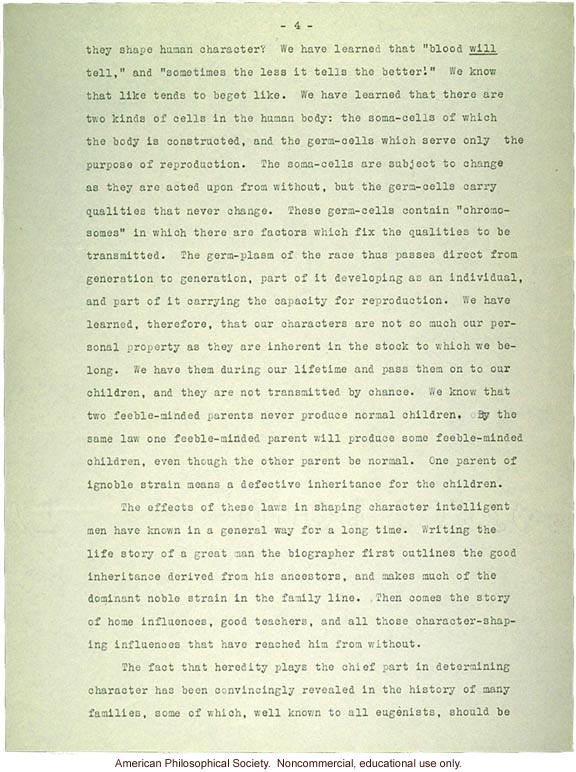ID# 783: |
Sermon #36 exerpt: "Eugenics," AES Sermon Contest 1926, #4 | |||
Date: |
1926 |
|||
Source: |
American Philosophical Society, AES, 57506: Am3 | |||

 |
|
| |||||||||||||||||

[page number] -4- [end page number] they shape human character? We have learned that "blood will tell," and "sometimes the less it tells the better!" We know that like tends to beget like. We have learned that there are two kinds of cells in the human body: the soma-cells of which the body is constructed, and the germ-cells which serve only the purpose of reproduction. The soma-cells are subject to change as they are acted upon from without, but the germ-cells carry qualities that never change. These germ-cells contain "chromosomes" in which there are factors which fix the qualities to be transmitted. The germ-plasm of the race thus passes direct from generation to generation, part of it developing as an individual, and part of it carrying the capacity for reproduction. We have learned, therefore, that our characters are not so much our personal property as they are inherent in the stock to which we belong. We have them during our lifetime and pass them on to our children, and they are not transmitted by chance. We know that two feeble-minded parents never produce normal children. By the same law one feeble-minded parent will produce some feeble-minded children, even though the other parent be normal. One parent of ignoble strain means a defective inheritance for the children. The effects of these laws in shaping character intelligent men have known in a general way for a long time. Writing the life story of a great man the biographer first outlines the good inheritance derived from his ancestors, and makes much of the dominant noble strain in the family line. Then comes the story of home influences, good teachers, and all those character-shaping influences that have reached him from without. The fact that heredity plays the chief part in determining character has been convincingly revealed in the history of many families, some of which, well known to all eugenists, should be